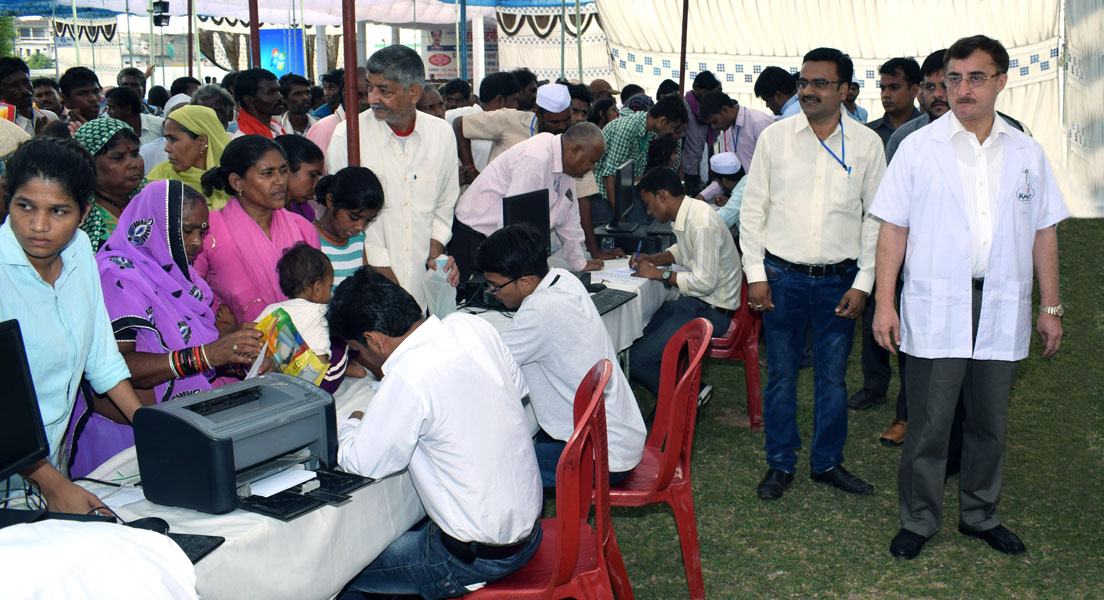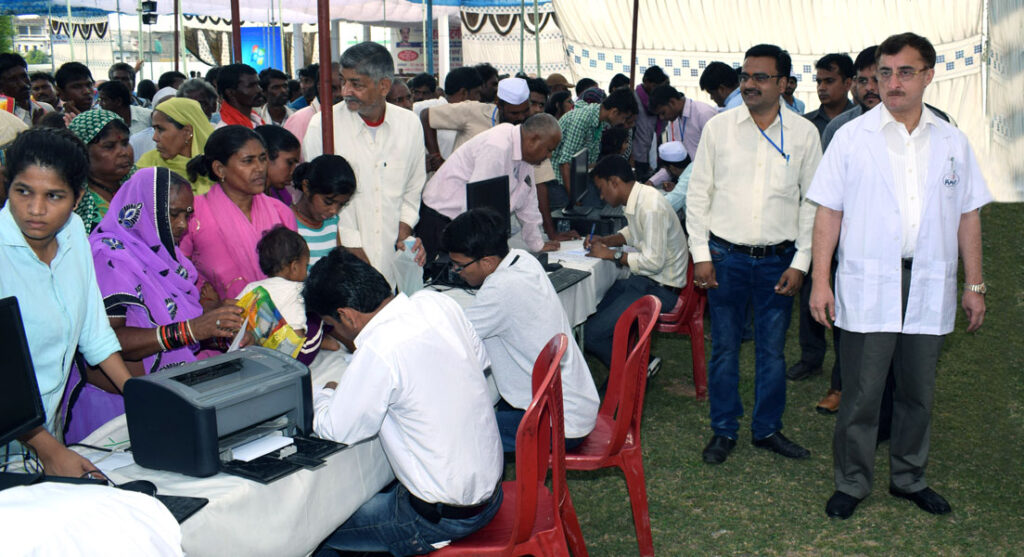The RAHAT healthcare camp organised by RC Jabalpur, D 3261, touched the lives of almost 10,000 people in a single day. The camp venue at Katangi, a town 35 km from Jabalpur in Madhya Pradesh, overflowed with villagers from three neighbouring hamlets. “All these villages lack proper medical facility and the nearest hospital is at Jabalpur for which a patient has to spend Rs 40 to reach by bus. Most of them are farmers and their income level is so low that they cannot afford even this charge, let alone a hospital bill,” says Club President Mohit Chatterjee.

This is the 11th RAHAT camp of the district. Chatterjee points out that the one at Mandla served 58,000 people in 2010 while the Shadol camp in 2016 treated 44,000 patients. “Those were week-long camps while this one is a day-camp. PDG Vivek Tankha is the man behind these medical camps,” he says.
Eighty-year-old Charan Lal Yadav from Devgawa hamlet gives a toothless smile as he comes out of an ENT surgeon’s chamber. He is happy that the doctors have advised treatment for his long-suffering eye and ear problems. “My eyes water continuously and I keep hearing a ringing sound in my ear. The doctors have given me medicines and asked me to visit them at the government hospital after a month,” he says.
Fifteen doctors from AIIMS and Max Hospitals, Delhi, and 65 doctors from the Jabalpur Government Medical College, Shalby, Mannulal and Global hospitals rendered their services.
Most of them are farmers; their income level is so low that they cannot afford even the bus charge, let alone a hospital bill.
– Mohit Chatterjee, President, RC Jabalpur.
Most people were suffering from arthritis and dental issues. “The region has high fluoride content in the groundwater and this has an adverse effect on the villagers’ health,” says Chatterjee. Malnutrition among women and children is also quite high. Though the government has posted 14 doctors in anganwadis, 12 of them do not report for duty while two doctors come occasionally, sign the register and leave, he points out.
Lack of medical facilities has resulted in childbirths at home and gynaecologists treated many women with complications due to non-clinical C-section deliveries.
Special buses transported people from their villages to the camp site. “With special arrangement with the RTO, we have given RAHAT cards to patients who require follow-up treatment at Jabalpur hospitals. They just have to show the card to the bus conductor and travel free,” says Chatterjee. Food was provided to all registrants and “that was the major pull.” Rotary Club of Jabalpur Sanskardhani took care of the registrations and Neelesh Awasti, the local MLA, also provided support with the logistics.
Around 75 patients were advised surgeries. “We’ll follow it up and see that it is completed within six months,” says the club president.






